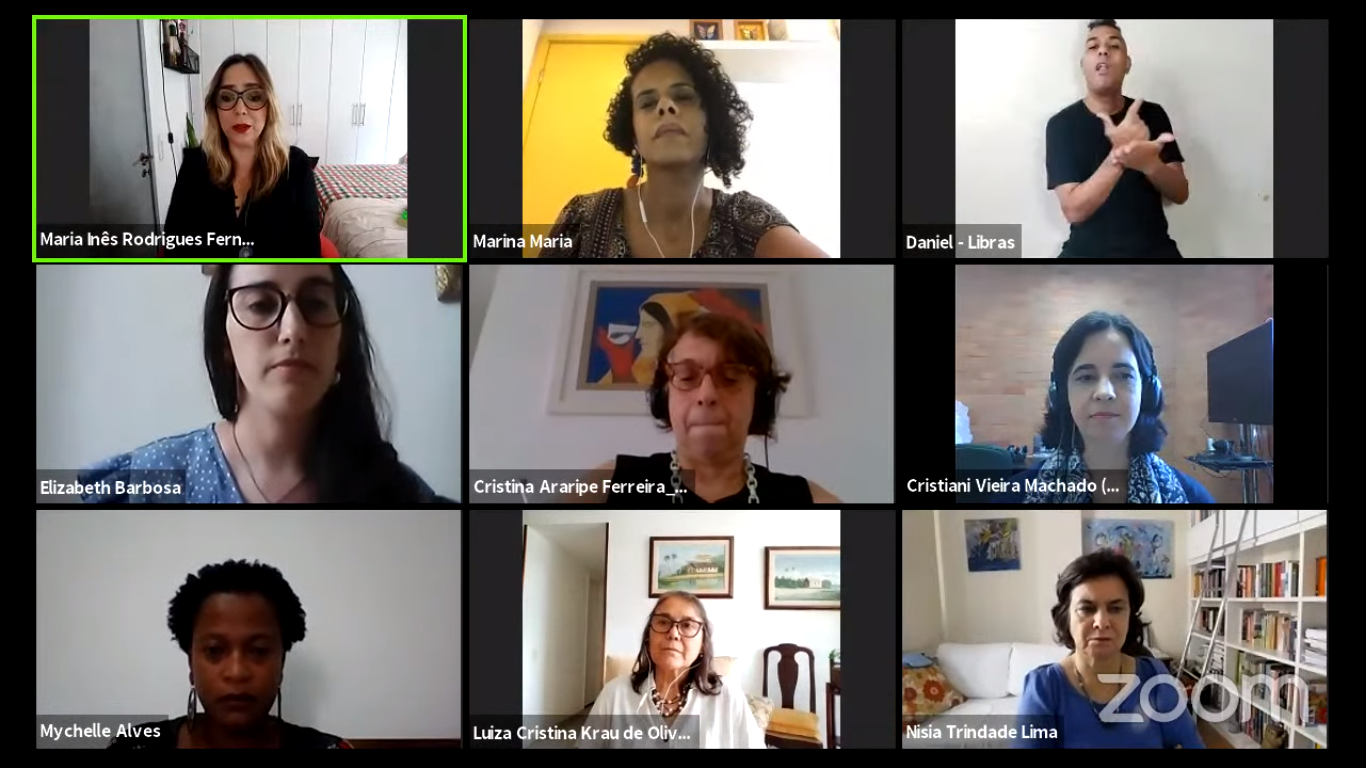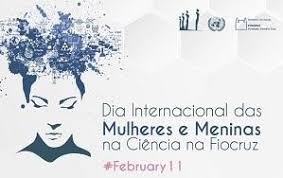
The 11th of February was a day to celebrate. It was the 6th International Day of Women and Girls in Science, dedicated in 2021 to women Scientists at the forefront of the fight against Covid-19.
Fiocruz commemorated the special date with many activities from the 10th to the 12th February held online through Youtube (in Portuguese).
Opening Ceremony
From left to right: journalist Maria Inês Fernandes (moderator); Representative of Committee for Equality of Race and Gender, Marina Maia; Brazilian sign language interpreter, Daniel; leader of Graduate Student’s Association, Elizabeth Barbosa; Public Science Communication Coordinator, Cristina Araripe; Vice President of Education, Information and Communication, Cristiani Machado; President of Fiocruz workers’ Union, Michelle Alves; daughter of the pioneer Luiza Krau, Cristina Krau de Oliveira, and President, Nísia Trindade Lima.
Fiocruz feminine leading team opened the event. Gender inequality in the research field guided the first debate. The first woman to be ahead of Fiocruz, Nísia Trindade, reflected on her trajectory as a scientist, stating that her uncle, who was a successful engineer, was a great supporter and enthusiast about her taking this career path. She highlighted that female leadership at the institution is only one-third of all positions and that institutional policies have to evolve to change this scenario.
Cristiani Machado added that Fiocruz has been making such efforts with the regional gender-inclusive initiatives, such as the launching of a series of videos that tells the story of the female pioneers. Cristina Araripe mentioned a 2018 Organization for Economic Cooperation and Development study which shows that ⅓ of girls around the planet do not have access to a proper education. It also demonstrates that although science counts on 33,3% female workforce, only 12% of them participate in the national academic structure. By its turn, Marina Maia recalled a study conducted by a Brazilian collective of scientists that discuss the relationship between science and parenthood, Parent in Science, which proved that female black scientists had their academic production most damaged. Accordingly, female Afro-Brazilian scientists account for only 3% in Brazil, reminded Beth Leite during her presentation.
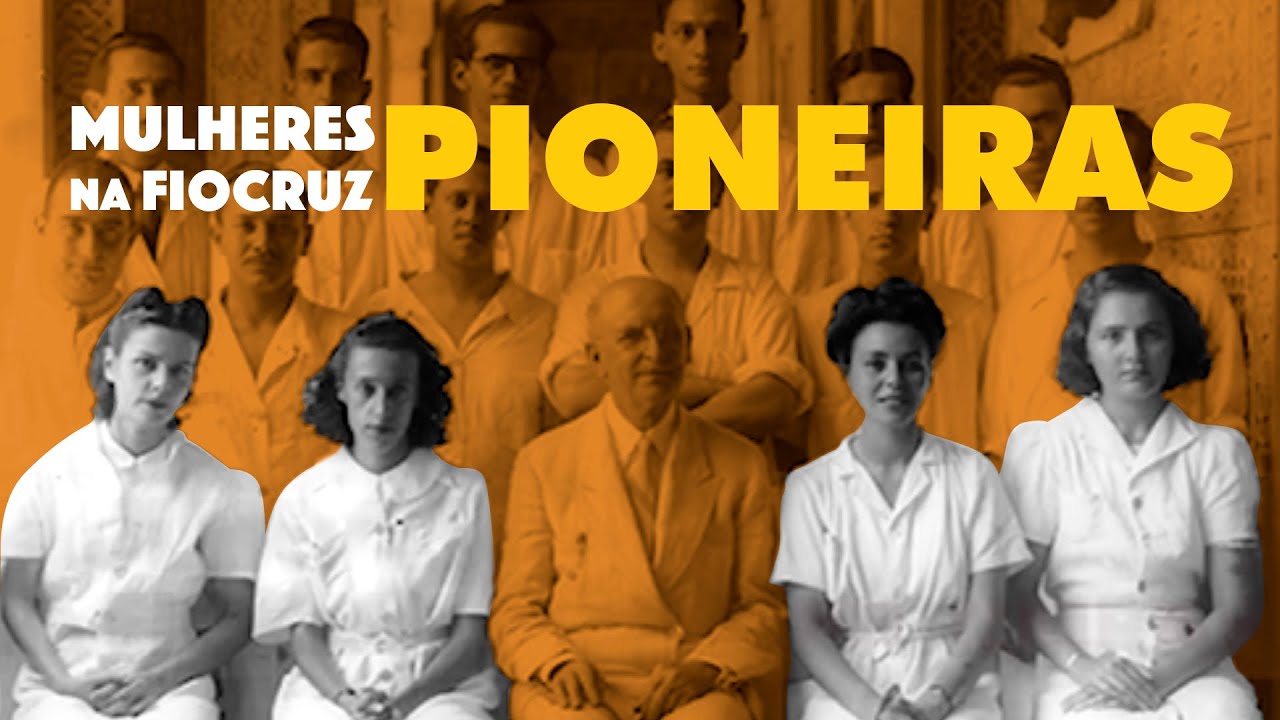
Watch the historical series (in Portuguese) about the female Fiocruz pioneers. Two of the protagonists, Monika Barth and Anna Kohn, answered some questions about their challenges, difficulties to hold a career as a scientist in Brazil, and the harm that harassment caused to their scientific trajectory.
Women at the forefront against Covid-19
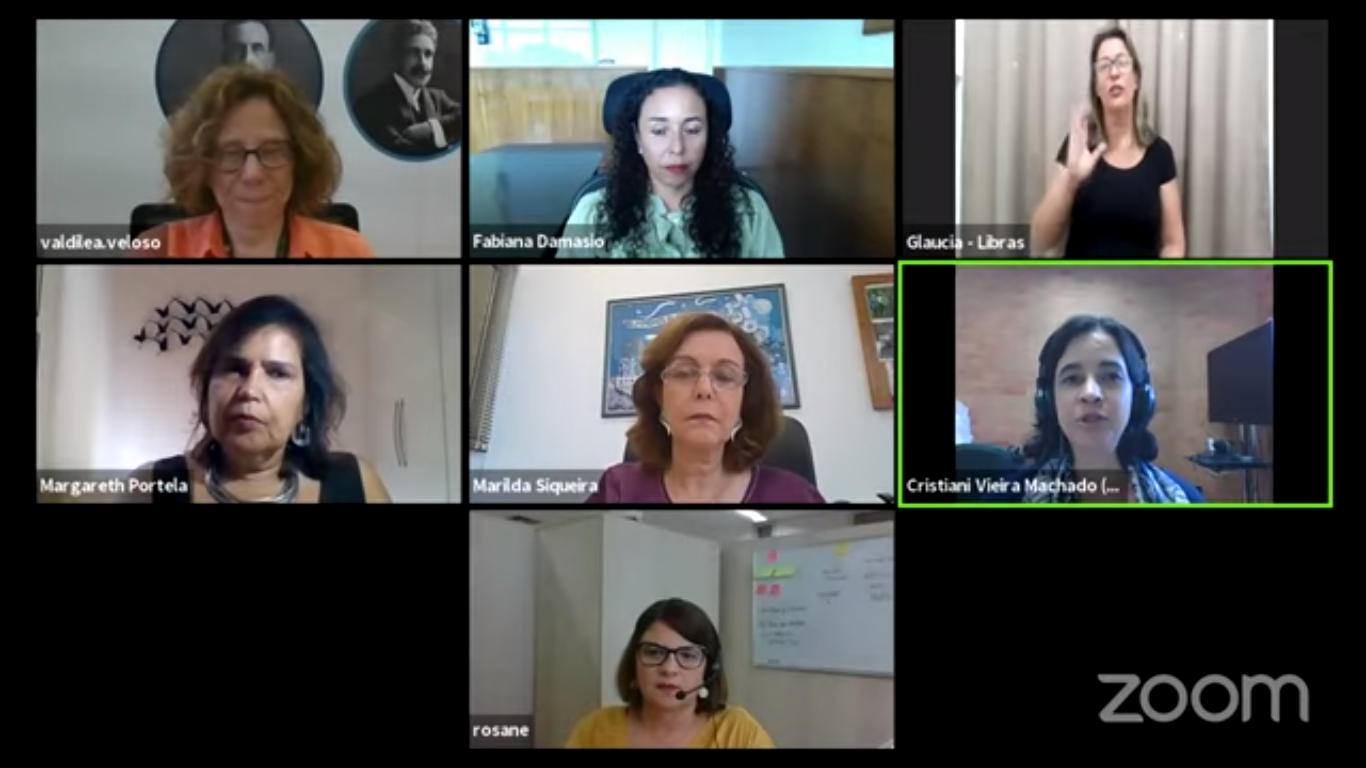
From left to right: Head of the Evandro Chagas Hospital, Valdiléa Veloso; Director of Fiocruz Brasília, Fabiana Damásio; Brazilian Sign Language interpreter, Glaucia; Sergio Arouca National School of Public Health Deputy Director of R&D, Margareth Portela; head of the Respiratory Viruses and measles Lab, Marilda Siqueira; Education, Information, and Communication VP, Cristiani Machado (moderator) and, Bio-Manguinhos Deputy Director of Quality, Rosane Cuber. The pulmonologist, and BCG Vaccination Trials Study Coordinator, Margareth Dalcomo also participate in the table.
Aligned with the theme of the year, Fiocruz organized a roundtable (in Portuguese) gathering women who work at the forefront against the Covid-19. They portrayed the panorama of Covid-19 in Brazil and also the impact it had on their everyday work. Hospital staff training, development of new online courses to guide health personnel all over the country, changes suffered by the hospital architecture to accept severely ill patients, international collaboration with colleagues throughout the globe to exchange information and guidelines, production of materials to governmental health guidance, the international race for equipment. Although those women faced previous health emergencies such as Aids, Ebola, and H1N1, Covid-19 is a disease that still holds aspects to be discovered.
Marilda Silveira made an important alert: with the predatory relationship between humans and the environment, we have to ask ourselves when the next pandemic will happen. She highlighted the importance of investments in research: “The research cannot be interrupted. It has an elevated cost, but we have as results the mitigation of situations such as the one we are experiencing. So, it is worth it”. Valdiléa Veloso stated that, in the very beginning of the pandemic, the Evandro Chagas Hospital was prepared with trained staff, equipment, and hospital beds. She proudly ended her participation in the table saying: “We count on female leadership in a lot of sectors of the hospital”. Cristiani Machado completed: “Although our institution took 120 years to have a female president, we have an outstanding team of women in science. We have to incorporate this aspect to the science and health fields”.
Margareth Portela spoke about the role of the Fiocruz Covid-19 Observatory, a multidisciplinary platform on Covid-19 information. She emphasized that there is a group of scientists committed to producing a biweekly report with epidemiological data. They monitor data provided by WHO and compare it with national indicators. Despite many obstacles in this realm, the Observatory has been providing important information on SARS in the country situation: “We are conscious that our actions are documenting a unique time in science to be investigated in the future”. On the efforts made to offer timely and crucial content for health workers to respond to the pandemic, Fabiana Damásio said that UNASUS and Fiocruz have appealed to their previous experience on the Zika epidemic. They were able to organize a course in 60 days that reached 45 thousand health workers and 80 thousand accesses per day from March to September.
The Head of Brasília Fiocruz Unit thanked all the female team of scientists that contributed to creating the course Covid-19 and Mental Health, a partnership with the Fiocruz Virtual Campus (the institution´s e-learning platform) coincidently coordinated by a woman: Ana Furniel. Rosane Cuber described the mission to China with the Brazilian Health Regulatory Agency (Anvisa, in Portuguese), whose goal was to acknowledge the requirements for vaccine registration. The last speaker, Margareth Dalcomo stated her surprise about the power of social media; one she could never picture before. “I was invited by the Ministry of Health, among other colleagues, to report about the particular characteristics of this pneumonia, at the time. I gave a state-of-art report of the situation through Youtube. On the third day after that, I was invited to do an interview by Globonews (a widely known journalistic channel in Brazil) because my report had reached one million views”, she concluded.
What do you want to become when you grow up? Black girls in science
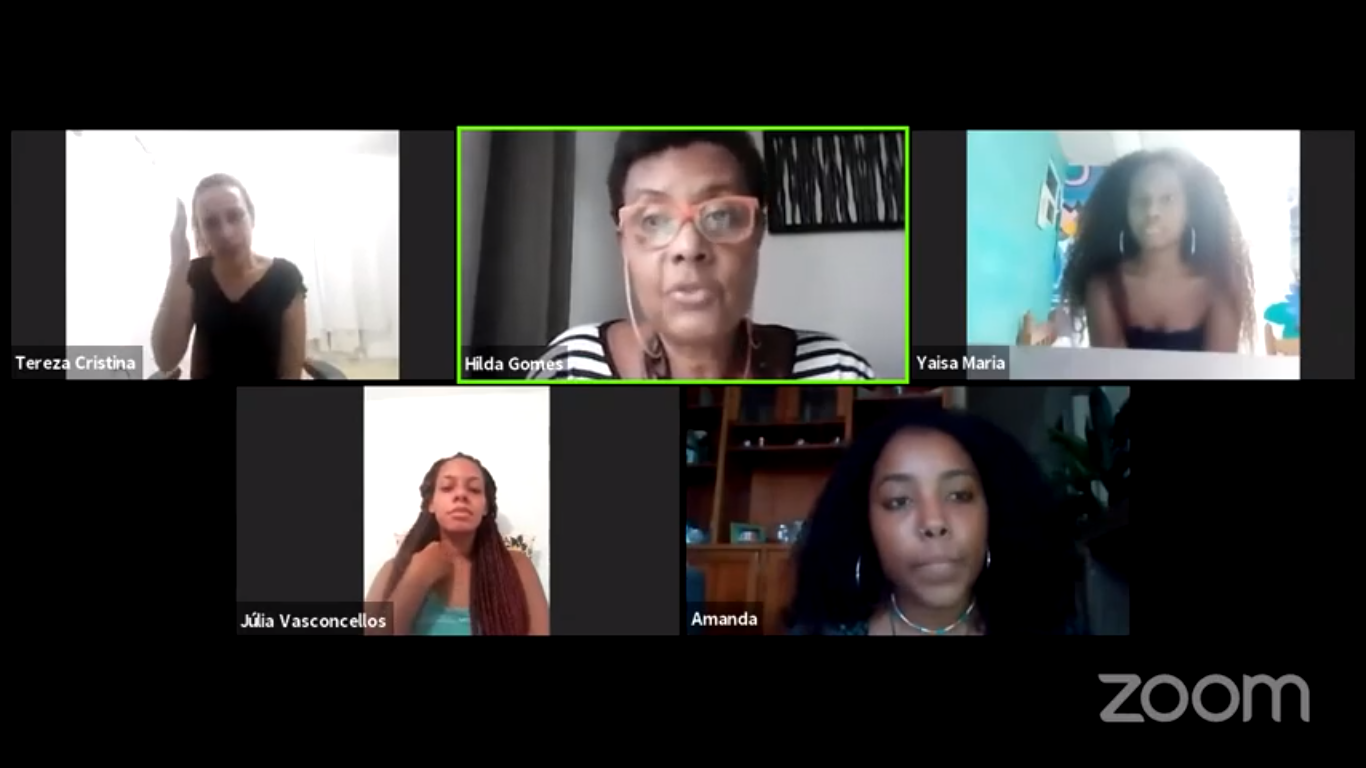
To close the celebrations, a group of female students conducted the roundtable (in Portuguese), representing a view of the future. Fiocruz has a program called Black Girls in Science, which enrolls young black girls to participate in activities to increase their understanding of science, racism, and feminism. Hosted by the Project Coordinator, Hilda Gomes, the young students talked about their aspirations to become a scientist challenging the usual role model: the white male. All activities could count on Brazilian Sign Language interpretations.
Covid-19: challenges and opportunities to nurses from TGHN perspective
Women in Science is also a theme that cut across many of the Global Health Network´s Hubs, especially, the Global Research Nurses one. It gathers nurses from all over the world in a community of practice, aiming at helping nurses engage, learn and seek opportunities to work in clinical research, and ultimately develop and lead their own studies. In many countries, the majority of nurses are women, as Halima Salisu-Kabara, member of the hub´s board. In her view, COVID-19 posed a challenge and opportunities to nurses around the globe: “The COVID -19 pandemic had a serious impact on nursing and the lives of women, and created opportunities for innovation and leadership. As nurses have a great role to play in achieving health and wellness, security, and the global health agenda - Universal Health Coverage, more women have become more independent. Many startups have emerged with women in technology using ICT knowledge and skills to upscale the workforce development.”, she declared.
